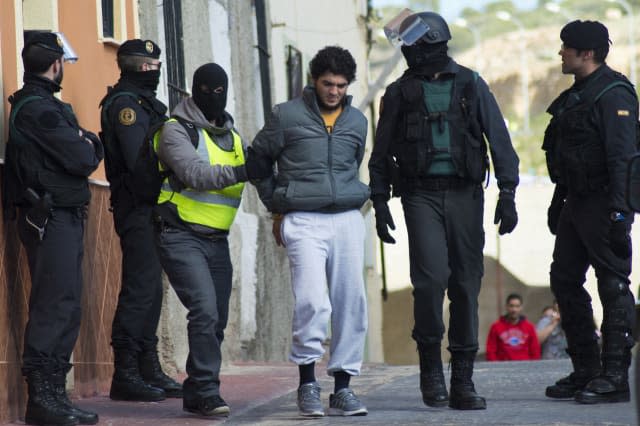Islamist terror 'a generational problem', says former MI5 boss

Islamist terrorism will remain a threat for another 20 or 30 years, a former head of MI5 has said.
Jonathan Evans said the terrorist threat to Britain was a "generational problem", and claimed the Westminster Bridge attack earlier this year may have had an energising effect on extremists.
Lord Evans, who retired from the Security Service in 2013, told BBC Radio 4's Today programme: "We're at least 20 years into this, my guess is that we will still be dealing with the long tail in another 20 years time - I think this is genuinely a generational problem.
"I think that we are going to be facing 20 or 30 years of terrorist threats and therefore we need absolutely critically to persevere."
He said the London bombings in July 2005 triggered an "energising effect on the extremist networks in the UK", and thought there would be a similar feeling following the Westminster Bridge attack earlier this year.
"We did see a huge upsurge in threat intelligence after 7 July and I suspect that there's the same sort of feeling in the period after the Westminster Bridge attack - that a lot of people who thought 'I'd like to do this' suddenly decided 'yep, if they can do it, then I can do it'."
Since the atrocity in March, there were attacks in Manchester, London Bridge and Finsbury Park.
Lord Evans, now an independent crossbencher in the House of Lords, also told the programme he would be "surprised" if Russia had not attempted to interfere with British democracy, following repeated allegations of Russian interference in foreign elections.
He said: "It would be extremely surprising if the Russians were interested in interfering in America and in France and in various other European countries but were not interested in interfering with the UK, because traditionally I think we have been seen as quite hawkish and therefore I would be surprised if there had not been attempts to interfere with the election."
Lord Evans said he did not think security services were "losing the race" despite the spate of terrorist attacks in Britain this year.
"I don't think we are losing the race; I think that it is a race and we have to keep moving forward rapidly unless we are going to slip back.
"There will be some capabilities that do get eroded and I think the widespread use of encryption has reduced the ability of the agencies and the police to access the content of materials."
However, he said he did not believe in weakening encryption because "there is a parallel issue which is cyber security more broadly".
"I think the way in which cyberspace is being used by criminals and by governments is a potential threat to the UK's interests more widely and it's very important that we should be seen and be a country in which people can operate securely - I think that's very important for our commercial interests as well as for our national security interests."
He also said he was "rather surprised" that terrorists had not used a dirty bomb in an attack on the UK.
"It seems such a clear opportunity. The fact that we haven't seen that is, of course, very, very good news.
"We have seen the use of chemical weapons in Iraq and Syria and in principle there is the risk that those could also be used in the West and in the UK, and I absolutely feel that we should be alert to that.
"There have been a number of measures taken, of course, to try to limit our vulnerability to radioactive devices and so on in the UK but there is still a vulnerability and it could happen."


